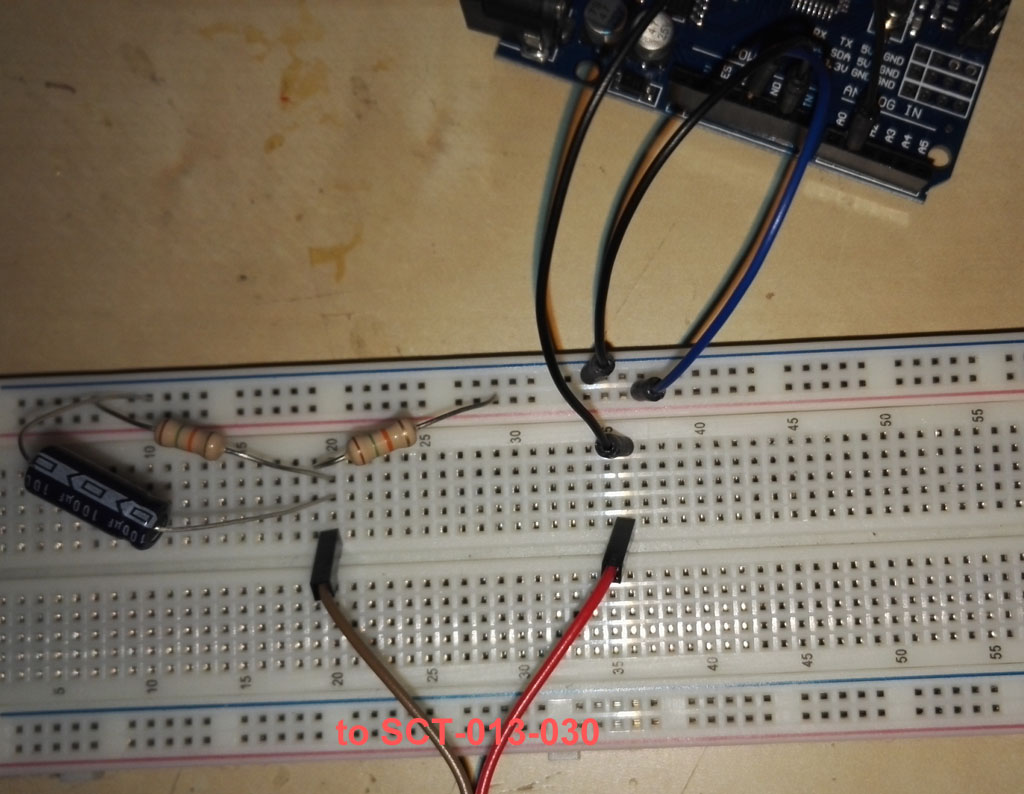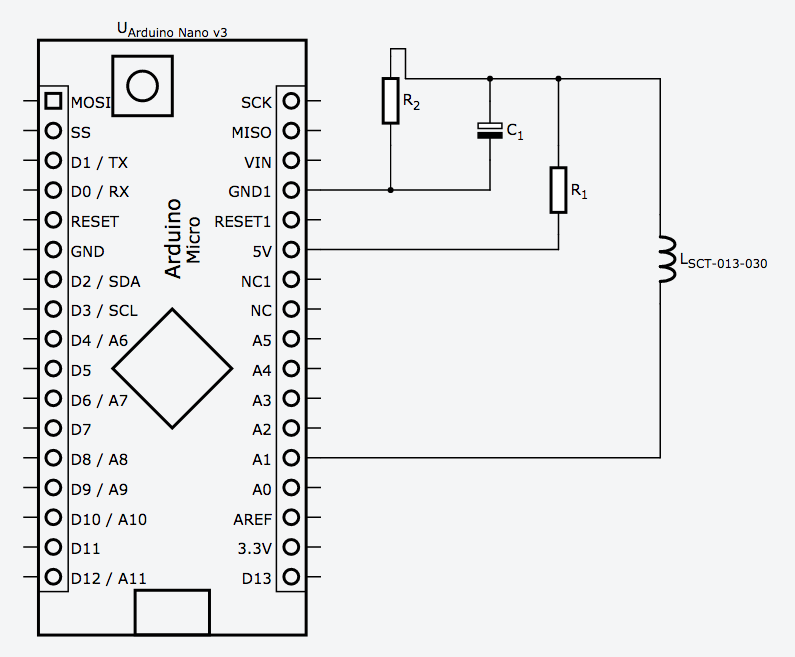Hi all
It's late and I finished the sketch for my Energy Meter. I'ts not tested yet, but the part for sct-reading is tested and works.
In a few days more nanos arrive, then I can test it.
/**
* The MySensors Arduino library handles the wireless radio link and protocol
* between your home built sensors/actuators and HA controller of choice.
* The sensors forms a self healing radio network with optional repeaters. Each
* repeater and gateway builds a routing tables in EEPROM which keeps track of the
* network topology allowing messages to be routed to nodes.
*
* Created by Henrik Ekblad <henrik.ekblad@mysensors.org>
* Copyright (C) 2013-2015 Sensnology AB
* Full contributor list: https://github.com/mysensors/Arduino/graphs/contributors
*
* Documentation: http://www.mysensors.org
* Support Forum: http://forum.mysensors.org
*
* This program is free software; you can redistribute it and/or
* modify it under the terms of the GNU General Public License
* version 2 as published by the Free Software Foundation.
*
*******************************
*
* EnergyMeterSCT by Patrick Schaerer
* This Sketch is a WattMeter used with a SCT-013-030 non invasive PowerMeter
* see documentation for schematic
*
* Special thanks to Surge, who optimized my code.
*
* updated to mySensors Library 2.0
*/
#define MY_RADIO_NRF24
#define MY_REPEATER_FEATURE
#define MY_DEBUG
#include <SPI.h>
#include <MySensors.h>
#include <EmonLib.h>
#define ANALOG_INPUT_SENSOR 1 // The digital input you attached your SCT sensor. (Only 2 and 3 generates interrupt!)
//#define INTERRUPT DIGITAL_INPUT_SENSOR-2 // Usually the interrupt = pin -2 (on uno/nano anyway)
#define CHILD_ID 1 // Id of the sensor child
EnergyMonitor emon1;
MyMessage wattMsg(CHILD_ID,V_WATT);
MyMessage kwhMsg(CHILD_ID,V_KWH);
MyMessage msgKWH(CHILD_ID,V_VAR1);
unsigned long SLEEP_TIME = 60000 - 3735; // sleep for 60 seconds (-4 seconds to calculate values)
float wattsumme = 0;
float kwh = 0;
float wh = 0;
int minuten = 0; //vorher 61
boolean KWH_received=false;
//Humidity Sensor Code
#include <DHT.h>
#define CHILD_ID_HUM 2
#define CHILD_ID_TEMP 3
#define HUMIDITY_SENSOR_DIGITAL_PIN 2
DHT dht;
float lastTemp;
float lastHum;
boolean metric = true;
MyMessage msgHum(CHILD_ID_HUM, V_HUM);
MyMessage msgTemp(CHILD_ID_TEMP, V_TEMP);
//End of Humidity Sensor Code
void setup()
{
//energy clamp code
//gw.begin(incomingMessage, AUTO, true,0);
Serial.begin(115200);
emon1.current(ANALOG_INPUT_SENSOR, 30); // Current: input pin, calibration.
double Irms = emon1.calcIrms(1480); // initial boot to charge up capacitor (no reading is taken) - testing
request(CHILD_ID,V_VAR1);
//end of energy clamp code
//Humidity Sensor Code
dht.setup(HUMIDITY_SENSOR_DIGITAL_PIN);
metric = getConfig().isMetric;
//End of Humidity Sensor Code
}
void presentation() {
// Send the sketch version information to the gateway and Controller
// Register this device as power sensor
sendSketchInfo("Energy Meter SCT013", "2.0");
present(CHILD_ID, S_POWER);
present(CHILD_ID_HUM, S_HUM);
present(CHILD_ID_TEMP, S_TEMP);
}
void loop()
{
//process();
//KWH reveived check
if (!KWH_received) request(CHILD_ID,V_VAR1);
// power used each minute
if (minuten < 60) {
double Irms = emon1.calcIrms(1480); // Calculate Irms only
if (Irms < 0.3) Irms = 0;
long watt = Irms*240.0; // default was 230 but our local voltage is about 240
wattsumme = wattsumme+watt;
minuten++;
send(wattMsg.set(watt)); // Send watt value to gw
Serial.print(watt); // Apparent power
Serial.print("W I= ");
Serial.println(Irms); // Irms
}
// end power used each minute
// hours KW reading
if (minuten >= 60) {
wh = wh + wattsumme/60;
kwh = wh/1000;
send(kwhMsg.set(kwh, 3)); // Send kwh value to gw
send(msgKWH.set(kwh, 3)); // Send kwh value to gw
wattsumme = 0;
minuten = 0;
}
// end of hourly KW reading
// Humidity Sensor Code
if (minuten == 15 || minuten == 30 || minuten == 45|| minuten == 60) {
float temperature = dht.getTemperature();
if (isnan(temperature)) {
Serial.println("Failed reading temperature from DHT");
} else if (temperature != lastTemp) {
lastTemp = temperature;
if (!metric) {
temperature = dht.toFahrenheit(temperature);
}
send(msgTemp.set(temperature, 1));
Serial.print("T: ");
Serial.println(temperature);
}
float humidity = dht.getHumidity();
if (isnan(humidity)) {
Serial.println("Failed reading humidity from DHT");
} else if (humidity != lastHum) {
lastHum = humidity;
send(msgHum.set(humidity, 1));
Serial.print("H: ");
Serial.println(humidity);
}
}
//End of Humidity Sensor Code
wait(SLEEP_TIME);
}
void receive(const MyMessage &message) {
if (message.type==V_VAR1) {
kwh = message.getFloat();
wh = kwh*1000;
Serial.print("Received last KWH from gw:");
Serial.println(kwh);
//send(kwhMsg.set(kwh, 3)); // Send kwh value to gw
KWH_received = true;
}
}
The schematics for attaching of the sct-013-030 is shown in the picture.


